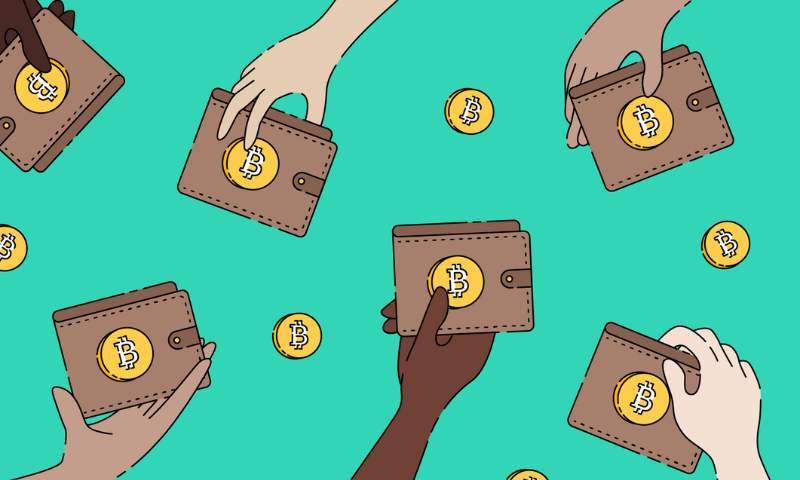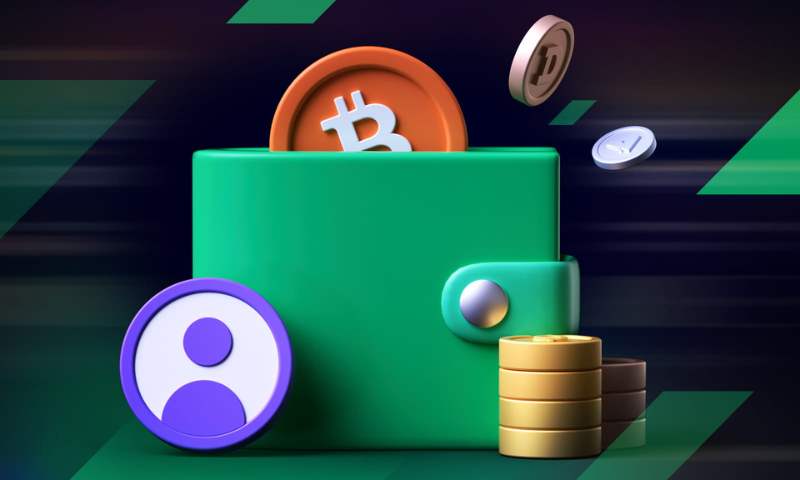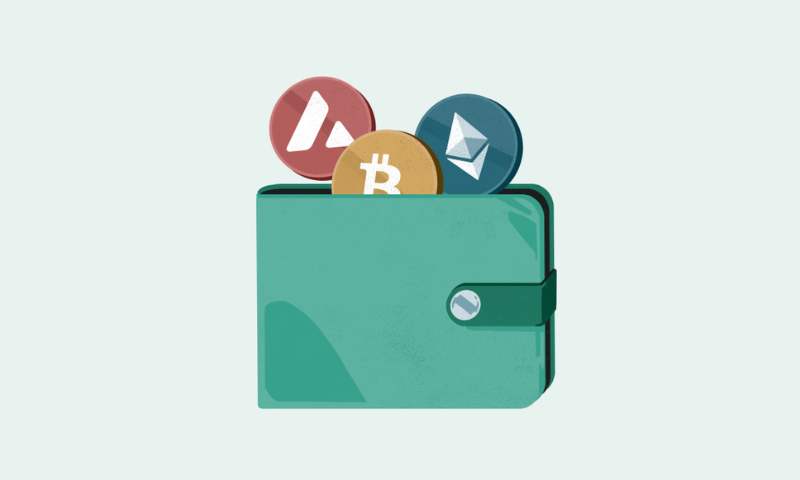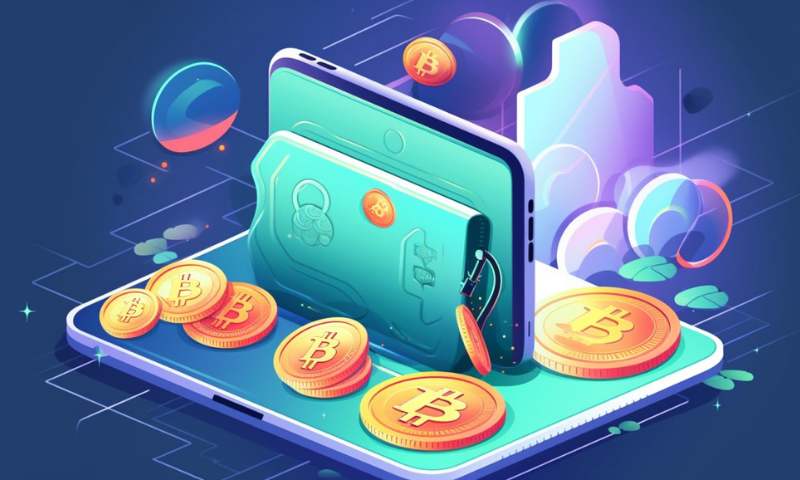Choosing a reputable crypto wallet for beginners isn’t just smart—it’s crucial for your peace of mind in the digital coin realm. You wouldn’t leave your physical wallet lying around for anyone to grab, would you? In the same way, picking the right crypto wallet is the first defense against online pickpockets keen on swiping your digital cash. As you set off on this crypto journey, understanding the nuts and bolts of wallet security isn’t a “nice-to-have”. It’s a must. Where to start? With the plethora of choices out there, this guide makes the complex simple. From grasping crucial key safeguards to assessing the wallet types best suited for those just starting out, we’ve got your back. Dive in with us as we lay out step-by-step instructions and tips for setting up your wallet securely, ensuring that your first foray into cryptocurrency is a leak-proof one.
Understanding the Basics of Crypto Wallet Security
The Importance of Secure Cryptocurrency Storage
When you buy digital money, like Bitcoin, you need a safe place to keep it. This is where wallets come in. They help you hold your digital cash safely. It’s just like picking a bank to keep your money secure. You want the top-rated crypto wallets to keep your funds away from harm.
Private Key and Seed Phrase Security 101
Each wallet has a special key, a sort of secret password. It’s called a private key. Think of it like your house key. Only you should have it. If someone else gets it, they can take your crypto. That’s why it’s super important to keep this key safe.
Now, a seed phrase is another key part. It’s like a master key. It is a group of words that can back up your wallet if you lose it or forget your key. Imagine forgetting the code to a secret chest. Your seed phrase can help remember it for you.
Understanding wallet seed phrases is like learning a magic spell. Use them well, and they protect your treasure. But if someone bad learns them, they can steal your coins. So, you should write your phrase down. Keep it in a spot only you know about.
In the world of crypto, we say, “not your keys, not your coins.” It means if you don’t have your keys, then the crypto isn’t really yours. Someone else can control it.
Always choose wallets that let you be the boss of your keys and seed phrase. This way, you can always access your money, and it stays safe from others.
Remember, good security starts with picking the right wallet. Go for user-friendly crypto wallet features for an easy start. Look for clear guides and help so you can learn as you go.
The best crypto wallets for starters should offer you peace of mind. They help you understand what you’re doing every step of the way. Plus, they give strong security so you can sleep well at night, not worrying about your digital cash.
Check for digital wallet security measures, like extra passwords or ways to verify it’s really you logging in. These are like extra locks on your digital money box.
And if things get tricky, it’s nice to have a support team to help. When choosing your wallet, make sure they’re easy to reach and helpful.
When you’re a new user, crypto storage solutions should make you feel safe and confident. That’s what you’ll want for a happy journey into the magical world of crypto. So take your time. Look for the best fit for you. And if you’re not sure, ask others who have been in your shoes. They can tell you about their own secure blockchain wallets and what they like best.
Assessing Different Types of Crypto Wallets
Hot Wallet Versus Cold Wallet: Which is Best for Beginners?
Should a newcomer use a hot wallet or a cold wallet? A hot wallet connects to the internet. It means quick access to your coins. Think of it like a purse you carry for daily cash. A hot wallet is smart if you make frequent trades or shop with crypto. But, there’s a catch. Because it’s online, it can be hacked more easily.
Then there’s the cold wallet. Cold wallets are like safe deposit boxes. They hold your crypto offline, away from hackers. They are smart for saving crypto you won’t use soon. But they aren’t as quick to use as hot wallets.
Hardware Wallets and Software Wallets Compared
What about choosing between hardware and software wallets? A hardware wallet is a physical device, like a USB stick. It keeps your crypto safe and offline. It’s super safe but costs money to buy. A software wallet, in contrast, is a free app you download. It is easy to use but stays on your phone, computer, or online.
Hardware wallets score high for safety. They are great for a lot of crypto or long-term savings. But what if you don’t have much crypto yet or want easy use? Then, a software wallet could be the best pick for a beginner. It lets you learn as you start out with crypto. Just be sure the software wallet has good security, like a strong password and backup options.
Both hardware and software wallets have their place. Your choice might depend on how much crypto you have and what you plan to do with it. Just remember, whatever you pick, protect your private keys. Keep your wallet backup safe too. If you do this, either wallet can work well for a beginner.
Features and User Experience in Crypto Wallets
User-Friendly Crypto Wallet Features For Beginners
When you start with crypto, you need a wallet that’s easy and safe. The best crypto wallets for starters have simple menus and clear options. They guide you through each step, so you feel in control.
A good wallet also lets you buy and trade coins with no trouble. It will hold more than one kind of coin. Think of it like a real wallet. You don’t just carry one type of money, right? Safe crypto wallets work the same way and are called multi-currency crypto wallets for beginners.
Wallet Interface Usability and Backup Options
Now, let’s talk backup. It’s like a safety net for your coins. If you lose your phone or forget a password, backups save the day. Top wallets will ask you to write down a secret phrase. This is your wallet seed phrase. Keep it safe. It’s the key to get back into your wallet.
Also, a wallet should be as easy as sending a text. Mobile wallet apps for easy access fit great in your daily life. They should look clear and let you send and get coins fast. Think of swiping and tapping, like in other apps you use.
Lastly, remember that where your wallet comes from matters. Always pick one from a service that’s known to be safe and reliable. It’s your money at stake. Choosing trustworthy Bitcoin wallet providers is like picking a bank. You want one you can trust to protect your money.
In all, when you pick your first wallet, look for these:
- Clear, easy menus
- Holds many types of coins
- Step-by-step guides
- Safe backup options
- Smooth on phones or desktops
- Comes from a safe provider
Crypto might seem big and complex, but with the right wallet, it’s not so scary. Get a wallet that works for you, and you’re set for a great start!
Setting Up Your First Crypto Wallet Safely
Step-by-Step Guide on How to Pick a Crypto Wallet
Picking your first crypto wallet is vital. You need a safe place for your coins. Follow these simple steps to find the best secure blockchain wallets. First, ask yourself: What am I using it for? Daily use, or do I plan on saving? This helps you to choose between a hot wallet (online) or a cold one (offline).
Step one: Do your research. Look for the top-rated crypto wallets. They must have strong security, good reviews, and be easy to use. Step two is checking features. Do you want to hold many coin types? Then, a multi-currency crypto wallet for beginners is for you. Step three: think about where you will use it. If you’re always on the go, a mobile wallet app is handy. But, if you want something more stable, desktop wallet advantages for first-timers are better.
Now, let’s talk safety. Picking a crypto wallet is not about the wallet itself, but how you manage it.
Tips for Maintaining Ongoing Wallet Security and Insurance Options
Staying safe doesn’t stop after you pick your wallet. Keep your coins safe with these tips. Backup your wallet. This way, if your computer or phone breaks, your coins are still safe. Learn about your wallet’s backup options before you need them.
Private keys are like the keys to your safe. Never share them. If they get lost, having a backup plan is vital. So, write down your seed phrase. It’s a backup key to all your coins. Stash it in a place no one but you can find.
Use strong passwords and change them often. Stay alert about online wallet dangers for new investors. They’re at risk of hacking. More safe storage means going offline. That’s why cold storage for crypto beginners is a strong choice. It’s like storing your jewels in a bank vault.
Knowing about crypto wallet insurance and protection can also save you sleepless nights. Some wallets offer insurance for your digital coins. This can help if theft happens. Check if the wallet you pick has this safety net.
Lastly, remember this. Practice makes perfect when setting up first crypto wallet. It seems hard now, but you’ll get the hang of it. And I’m here to guide you every step of the way. Trust your gut, and go for wallets that make you feel confident and secure. Enjoy the world of digital currency, but stay safe out there.
In this post, we dug into crypto wallet security, which is crucial for protecting your digital coins. We started with the need for safe storage and how private keys and seed phrases play a key part. We then explored wallet types and found out that hot wallets are more convenient while cold wallets are safer. We also compared hardware and software wallets to help you choose.
Next, we looked at wallet features that make things easier for beginners. We talked about wallet interfaces and the value of good backup options. Finally, we walked through how to set up a wallet safely and keep it secure, including some tips on security and insurance.
I hope now you feel ready to take on the world of cryptocurrency with a strong grip on wallet security. Remember, the right wallet can make all the difference in safeguarding your investment. Stay safe, stay informed, and enjoy the journey into crypto!
Q&A :
What factors should beginners consider when choosing a crypto wallet?
Choosing the right crypto wallet is crucial for the security and accessibility of your digital assets. Beginners should look for user-friendly interfaces, robust security features such as two-factor authentication, backup options, and compatibility with various types of cryptocurrencies. Additionally, it’s important to decide between hot wallets (online wallets) and cold wallets (offline or hardware wallets), with the latter generally providing enhanced security.
Are hardware wallets the best choice for beginner crypto investors?
Hardware wallets are widely recommended for their security benefits, as they store cryptocurrency offline, making them less susceptible to online hacking attempts. For beginners willing to invest a bit more for peace of mind, a hardware wallet can be an excellent choice. However, they may find hardware wallets less convenient for frequent trading or transactions compared to hot wallets.
What’s the difference between a custodial and a non-custodial crypto wallet?
Custodial wallets are managed by a third party, such as a cryptocurrency exchange, which holds your private keys. This can be convenient for beginners, as the service provider manages the security of your crypto assets. However, it also means that you do not have full control over your wallet. Non-custodial wallets, on the other hand, give you complete control over the keys and, consequently, your assets, offering a higher degree of self-sovereignty and security.
How does one ensure the security of a crypto wallet?
To ensure the security of your crypto wallet, always use strong, unique passwords, and enable two-factor authentication whenever available. Be wary of phishing attempts and only download wallet software from official, reputable sources. Regularly update your wallet software to patch any security vulnerabilities, and consider using a hardware wallet to store large amounts of cryptocurrency.
Can I have multiple crypto wallets, and is it beneficial?
Yes, you can have multiple crypto wallets, and doing so can be beneficial in managing risks and organizing assets. For instance, you might use one wallet for day-to-day transactions and another for long-term savings. This can also be a form of security strategy, distributing your assets to minimize potential loss if one wallet is compromised. However, it’s essential to keep track of the different wallets and ensure that they all adhere to high-security standards.






